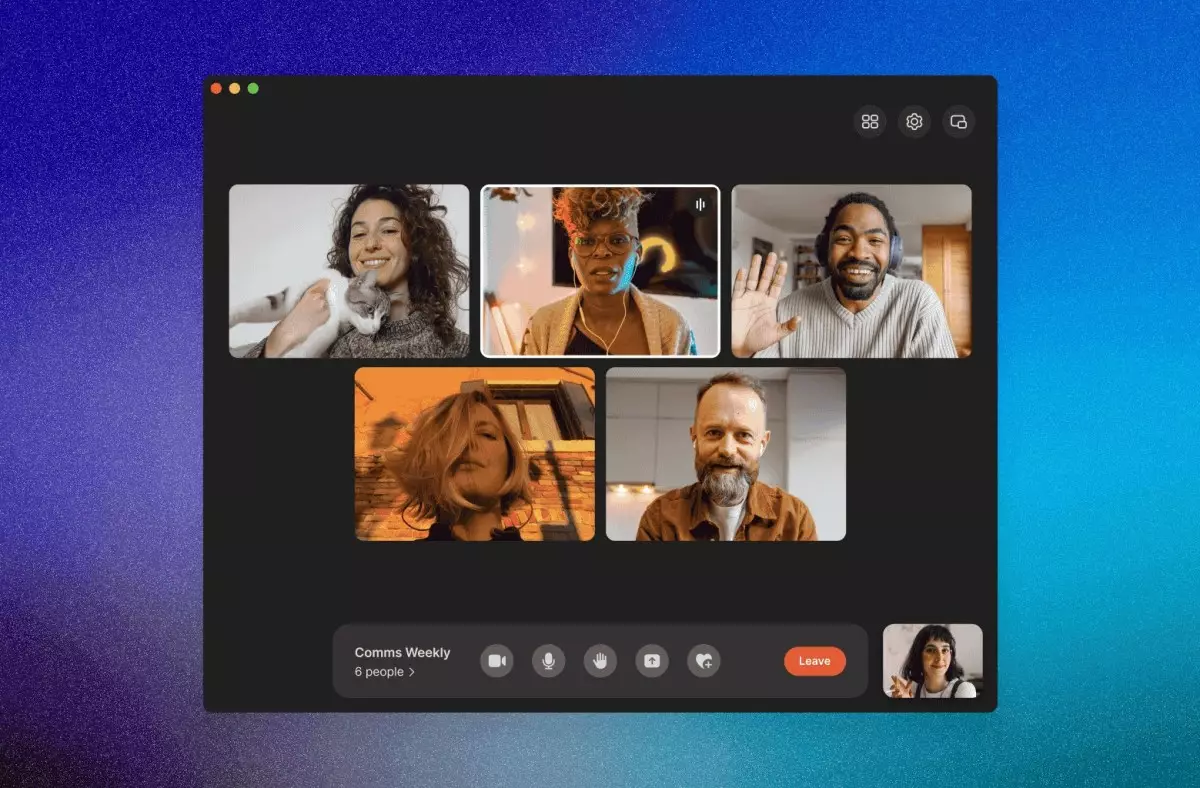Signal, renowned for its commitment to user privacy, is stepping up its game in the competitive landscape of video communication applications. The introduction of new features aimed at enhancing video calls reflects an evolution of the app’s functionalities that echo those of established competitors like Zoom, Google Meet, and Microsoft Teams. This strategic move not only aligns Signal’s offerings with market demands but also emphasizes its unique selling proposition: privacy.
One of the most significant additions to Signal’s video calling capabilities is the newly implemented “Calls” tab. This feature fundamentally changes how users can initiate and manage video meetings. Unlike traditional apps that require complex group setups, users can simply create a link for their calls, allowing for instant sharing with others. The reusability of these links for ongoing meetings is a clever adaptation that simplifies the process for users, making Signal a more attractive option for both personal and professional settings.
This enhancement parallels features already available on rival platforms, but Signal’s focus on user privacy makes this offering particularly enticing for users seeking secure communication methods. The ability to customize call settings—such as naming calls, managing participant access, and utilizing a hand-raising feature for question queuing—provides a level of control that may appeal to users wary of data surveillance.
The user interface improvements in Signal’s desktop application, which allow users to toggle between grid, sidebar, or speaker views, signify a notable commitment to optimizing user experience. These features are particularly vital as remote work and virtual meetings continue to persist globally. By providing multiple display options, Signal caters to varying user preferences and meeting contexts, ensuring that the tool remains versatile and user-friendly.
Furthermore, the capacity to accommodate up to 50 participants in group video calls reflects an understanding of current user needs, reinforcing Signal’s viability in professional environments. Despite WhatsApp expanding its functionality to include screen sharing and larger participant limits, Signal’s established reputation for security arguably provides it with an edge.
In a landscape where video calls have become integral to both work and social interactions, Signal’s enhancements are timely. The company recognizes that as communication modes evolve, so too must its offerings. The emphasis on creating a secure yet functional platform aligns with a growing consumer sentiment prioritizing privacy without compromising usability.
Signal has positioned itself not just as another player in the digital communication arena but as a trusted alternative for users seeking confidentiality. As it rolls out these new features across iOS, Android, and desktop platforms, the app may successfully appeal to a more extensive user base eager to adopt secure communication technologies.
Signal’s latest video calling features mark a strategic maneuver that showcases its commitment to privacy while acknowledging the need for user-friendly tools in an increasingly digital world. This dual focus could allow Signal to carve out a significant space within a crowded marketplace, adeptly balancing usability with its foundational ethos of security.


Leave a Reply